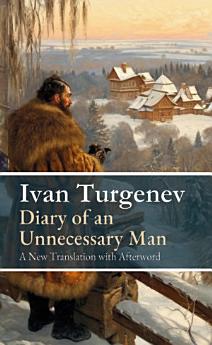Diary of an Unnecessary Man
About this ebook
This novella can be seen as one of Turgenev's first deep dives into the existential alienation that would become a hallmark of his literary contributions. Chulkaturin’s characterization as the "лишний человек" ties into a broader Russian literary tradition that interrogates the worth and place of individuals in a society where status and purpose are rigidly defined by social hierarchies. As Chulkaturin reflects on the wasted moments of his life, he becomes a symbol for a generation of men who found themselves marginalized by both their social standing and their inability to adapt to the rapidly shifting Russian landscape.
Additionally, Diary of an Unnecessary Man anticipates many of the themes that would define Russian existentialism in the works of Tolstoy and Dostoevsky. Chulkaturin’s musings on mortality, the meaning of life, and his ultimate insignificance within the grander social and political scheme of things lend the novella a profound psychological depth. Turgenev’s portrayal of Chulkaturin’s inner life—marked by regret and introspection—elevates the narrative beyond social commentary into the realm of philosophical rumination, a precursor to the later developments of Russian literature’s engagement with existential thought.
This critical reader's edition presents a modern translation of the original manuscript, crafted to help the reader engage directly with Turgenev's works through clean, contemporary language and simplified sentence structures that clarify his complex ideas. Supplementary material enriches the text with autobiographical, historical, and linguistic context, including an afterword on Turgenev’s history, impact, and intellectual legacy highlighting the personal relationships that shaped his philosophy (focusing on Dostoevsky, Tolstoy and Gogol), an index of the philosophical concepts he employs (emphasizing Realism and Nihilism) a comprehensive chronological list of his published writings, a brief biography, and a detailed timeline of his life.











